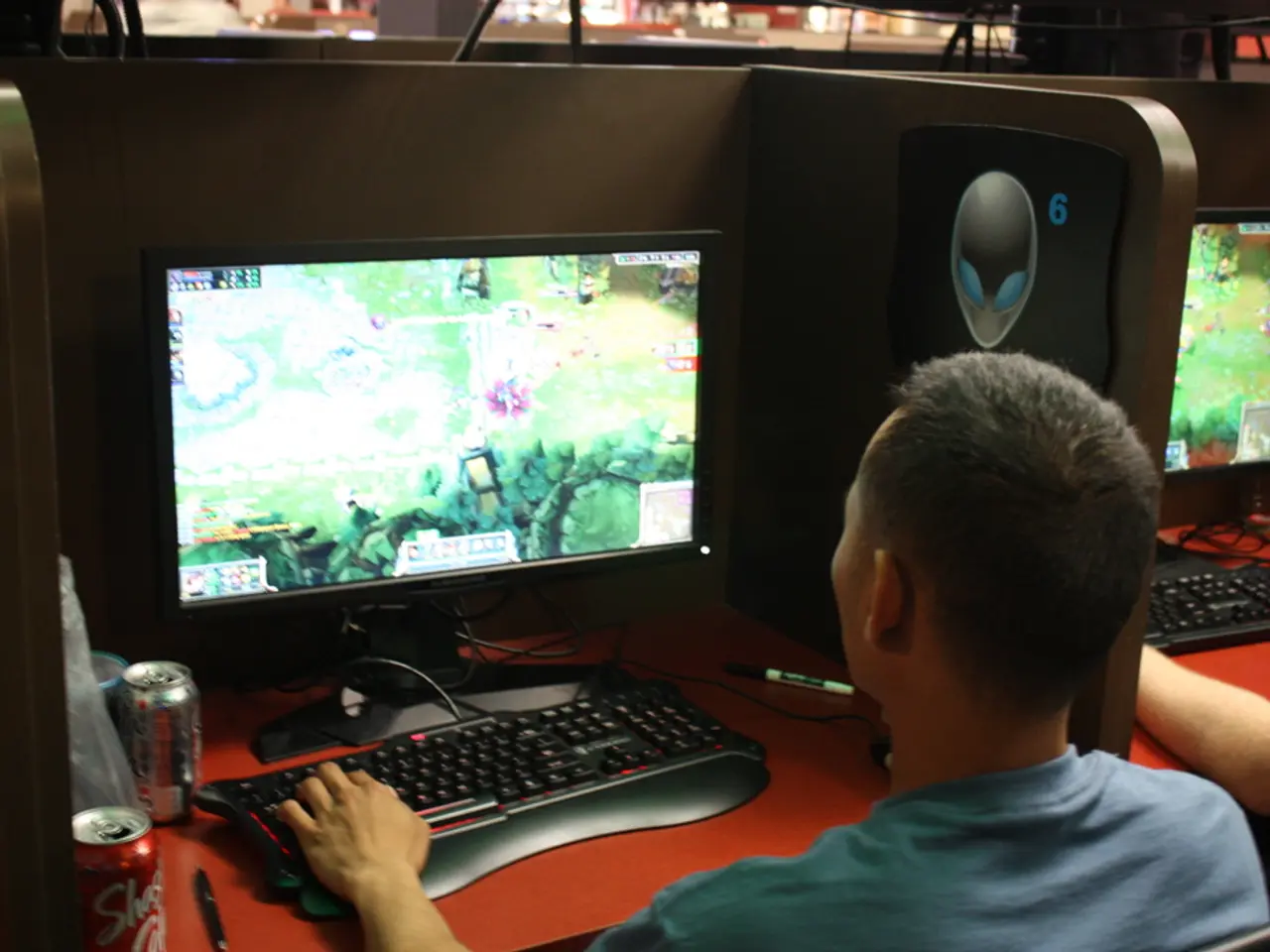Increasing numbers of Germans are falling prey to gambling addiction
=========================================================================
A recent survey conducted by the Bitkom association has shed light on the gaming habits and potential addiction issues among German gamers. The survey, which included 1209 participants aged 16 and above, offers a glimpse into the world of gaming in Germany and its implications.
The survey results suggest that around 0.3% to 1% of adults in Germany are diagnosed with Internet Gaming Disorder (IGD), a figure that aligns with figures from other Western countries such as the UK, US, and Canada. More broadly, between 1% and 10% of populations in North America and Europe are estimated to experience some degree of gaming addiction, with the lower end corresponding to formal diagnosis rates.
Regarding gaming hours, research from a similar European context (Sweden) shows people with gaming disorder play about 50 hours per week on average, primarily competitive and MMO games like League of Legends, Counter-Strike, and World of Warcraft. While this specific average is not from Germany, it suggests high engagement levels among those affected by problematic gaming.
The survey conducted by the Bitkom association also revealed that 58% of German gamers play less than two hours a day, with 28% preferring to play online with others. Interestingly, one in five German gamers has dreamt about a video game, and the importance of computer and video games continues to grow year by year.
In terms of device penetration, the survey results imply a high penetration of gaming devices in Germany, as suggested by European trends. For instance, 91% of Australian households have at least one gaming device.
Behavioural and psychological impacts of gaming among German young adults and adolescents are also significant. About 84% of Germans aged 18-24 feel they use their phones excessively, which may relate to gaming or other digital media use; 50% report associated symptoms such as distraction or discomfort. Support measures include app-based addiction prevention programs targeting vocational students in Germany.
It is worth noting that in 2023, only 39% of German gamers stated they couldn't imagine life without gaming, compared to 42% in 2015. The proportion of gamers has increased from 42% to 52% since then, indicating a growing trend in gaming among Germans.
The survey was conducted from mid-May to early June in 2023, and the results suggest an increasing trend in gaming among Germans. The Bitkom association, a German digital association that represents the interests of the digital economy, is the source of this information.
Sources: - ntv.de - mbr/dpa
- The community policy within Germany must address the increasing trend in casino-and-gambling, considering the implications of gambling-trends and the potential impact on the mental health of its citizens, as revealed in the Bitkom association's survey on gaming habits.
- As the casino-culture continues to evolve, understanding the roles and influences of casino-personalities in shaping these trends becomes crucial for the development of comprehensive employment policies that protect both workers and patrons.







